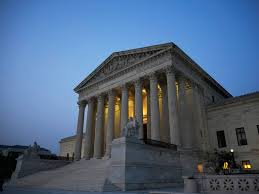
A Blow to Affirmative Action
thepurejustice 0 Comments Uncategorized
On Thursday, June 29, 2023, the United States Supreme Court decided two cases that affect affirmative action in colleges. The cases challenged the admissions process at Harvard College and the University of North Carolina. In the rulings, six of the Supreme Court justices decided that race cannot be systematically considered when admitting students to American colleges and universities. The vote was 6-3 in the North Carolina case and 6-2 in the Harvard case. (Justice Ketanji Brown Jackson recused herself in the Harvard case because she served on a board at Harvard.) A group called Students for Fair Admissions, led by conservative activist Ed Blum, brought both cases to court.
The six justices in the majority claimed that using race when admitting students is unlawful because it violates the Equal Protection Clause of the Constitution. Justice Thomas claimed that the Harvard and UNC programs were “rudderless, race-based preferences designed to ensure a particular racial mix in the entering classes,” and that they “fly in the face of our colorblind Constitution and our nation’s equality ideal.”
The dissenting justices disagreed strongly. Justice Jackson wrote that the ruling was “truly a tragedy for us all.” Justice Sotomayor wrote that the court “stands in the way and rolls back decades of precedent and momentous progress.” NBC News notes that “The court’s decision is a major blow to the most selective universities, which say some consideration of race is vital in ensuring they have diverse student bodies.” NBC News also said that the case “could also lead to future challenges to racial diversity programs used by employers, as similar arguments could be made under Title VII of the Civil Rights Act, which prohibits discrimination in employment.”
Despite what Justice Thomas thinks, the United States has never been a colorblind society. Race impacts everything in life, down to a person’s ability to walk on a street without harassment. Affirmative action helps to right historical wrongs in one small way by providing educational opportunities to minorities who were denied them for generations. The court’s rulings will set that progress back.
Remember that the United States president nominates Supreme Court Justices and senators confirm them. The next election for the president and one-third of the senators is in 2024. That election impacts who will be on the Supreme Court in the future, and whether we will progress as a society, or continue to embrace white supremacy.
____________________________________________________________________________________________________________________________
Written By: Noelle Steber